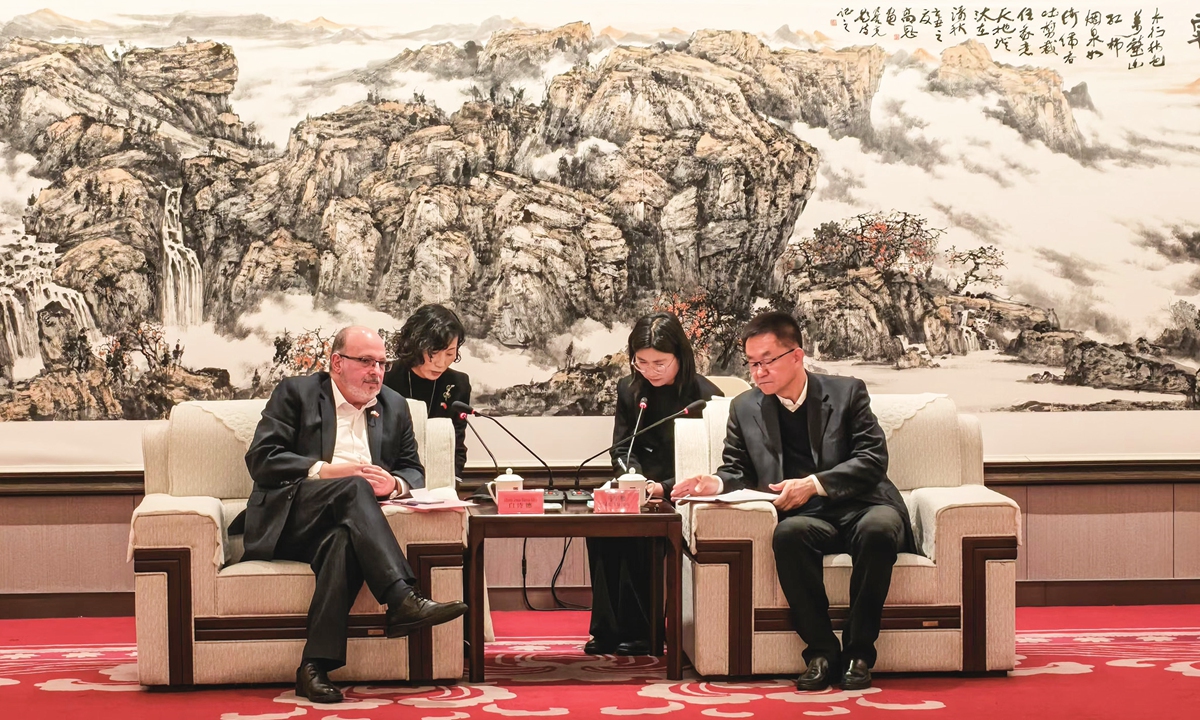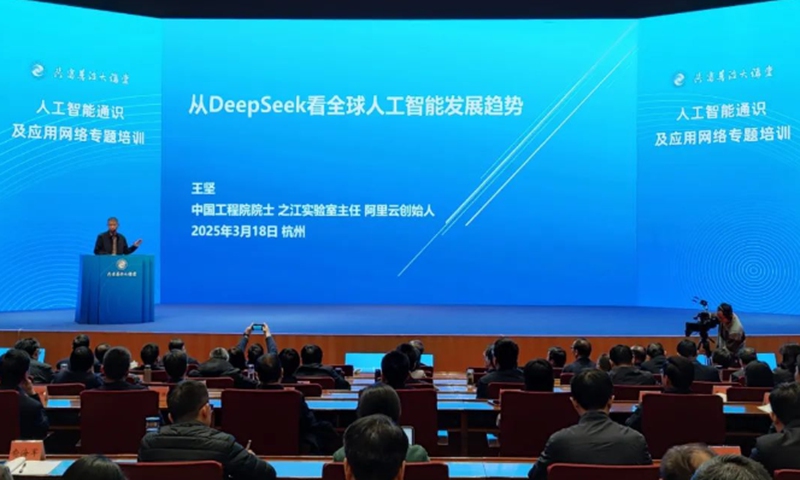![mk The<strong><a href=]() mk landscape lights along the Xixing Bridge in Hangzhou, East China's Zhejiang Province, remain off on August 7, 2024 to ensure power supply amid sweltering heat. Photo: VCG" src="https://www.globaltimes.cn/Portals/0/attachment/2024/2024-08-07/31bd1957-1a39-449a-954a-428f2fb999e5.jpeg" />
mk landscape lights along the Xixing Bridge in Hangzhou, East China's Zhejiang Province, remain off on August 7, 2024 to ensure power supply amid sweltering heat. Photo: VCG" src="https://www.globaltimes.cn/Portals/0/attachment/2024/2024-08-07/31bd1957-1a39-449a-954a-428f2fb999e5.jpeg" />The landscape lights along the Xixing Bridge in Hangzhou, East China's Zhejiang Province, remain off on August 7, 2024 to ensure power supply amid sweltering heat. Photo: VCG
Multiple cities in China have implemented measures to promote energy conservation, such as suspending unnecessary landscape lighting, adjusting industrial production schedules to avoid peak periods, and encouraging the use of energy-efficient equipment, in response to the high demand for electricity during the summer months, especially in regions experiencing sweltering heat.
Since the start of August, Hangzhou, the capital of East China's Zhejiang Province, has experienced the third wave of high temperatures this year, leading to a record high electricity load. To ensure power supply, the city has suspended unnecessary landscape lighting and light shows from Monday to Friday, the city authorities said on Tuesday.
Along with Hangzhou, other cities such as Nanjing, East China's Jiangsu Province, and Hefei, East China's Anhui Province have also released proposals calling for energy conservation in the face of the recent high temperatures.
China's National Meteorological Center on Wednesday morning continued to issue an orange alert for high temperatures as multiple regions in the country continue to experience sweltering heat, with some parts of Anhui, Jiangsu, and Zhejiang provinces recording temperatures of above 40 C.
In the three-tier warning system for high temperatures, red represents the most severe warning, followed by orange and yellow on the lower scale.
Industrial enterprises are required to scientifically optimize production schedules and avoid production during peak times. They're encouraged to use energy-efficient products and equipment that comply with national standards, said the Nanjing authorities.
The authorities in Zhenjiang, Jiangsu have called for government agencies and public institutions to turn off office equipment when not in use, set air conditioning to no lower than 26 C, turn off lights and electronic devices when leaving a room, and use stairs instead of elevators for floors below the third floor.
During extremely hot weather, it is essential for everyone to join in to save electricity. "Moving forward, we may need to explore new strategies. China has been leading the way in energy transition by embracing new sources of energy like solar and wind power," Ma Jun, director of the Beijing-based Institute of Public and Environmental Affairs, told the Global Times on Wednesday.
Enterprises in China are encouraged to cooperate and implement measures to save electricity and shift peak electricity consumption. This is important as industrial electricity consumption is high in some developed areas. The local authorities need to ensure industrial electricity supply while enterprises should focus on energy conservation as well, said Ma.
Chinese cities have been accelerating green and low-carbon transformation. The Global Times learned from State Grid Shanghai Municipal Electric Power Co that the peak power generation output of renewable energy in Shanghai's power grid exceeded 3 million kilowatts for the first time on July 28, reaching a peak at 3.1 million kilowatts, marking a new breakthrough in the utilization of renewable energy in the city.
It is predicted that the annual total generation of wind and solar energy in Shanghai will exceed 5 billion kilowatt-hours, equivalent to saving 1.5 million tons of standard coal and reducing carbon dioxide emissions by 4 million tons, said the company.
Li Yawei contributed to this story

 Cuba: Talks between ambassador and mayor of Shijiazhuang highlight exchanges and cooperation
Cuba: Talks between ambassador and mayor of Shijiazhuang highlight exchanges and cooperation China’s first Antarctic ecological subsurface mooring buoy successfully retrieved
China’s first Antarctic ecological subsurface mooring buoy successfully retrieved China’s first Antarctic ecological subsurface mooring buoy successfully retrieved
China’s first Antarctic ecological subsurface mooring buoy successfully retrieved E.China’s Zhejiang launches AI training for officials across the province
E.China’s Zhejiang launches AI training for officials across the province